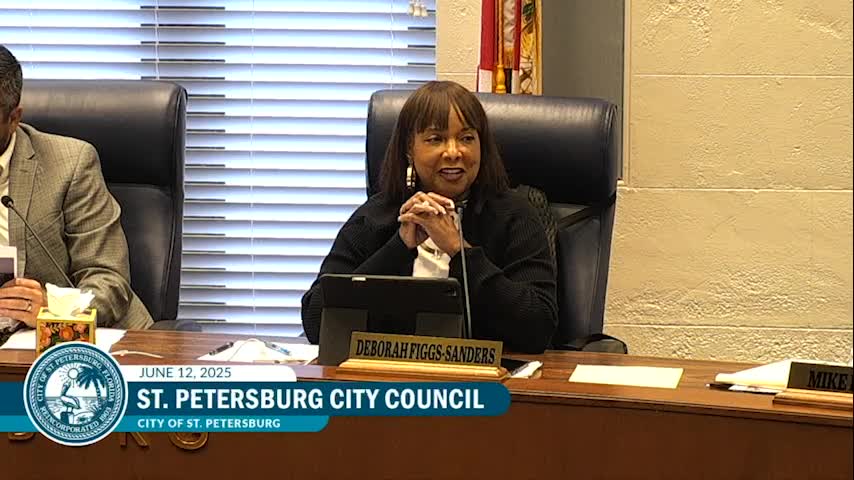Article not found
This article is no longer available. But don't worry—we've gathered other articles that discuss the same topic.
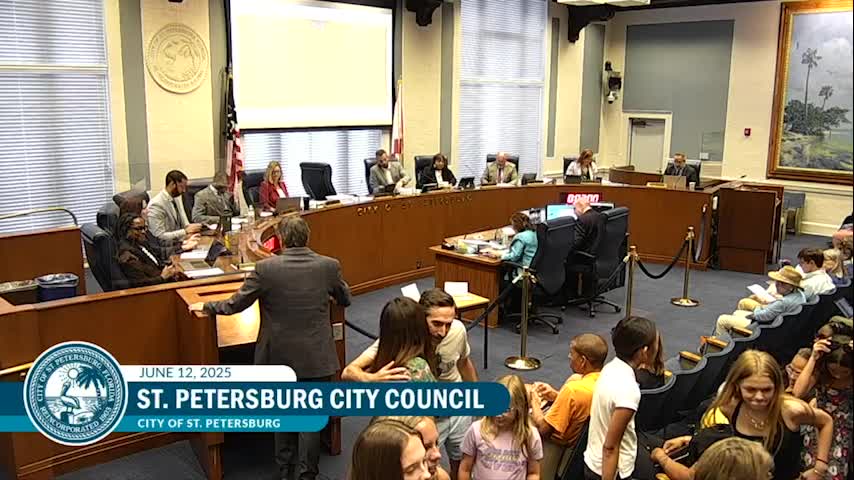
Votes at a glance: St. Petersburg council approves legal settlements, pension prepayment, planning authority and land use actions
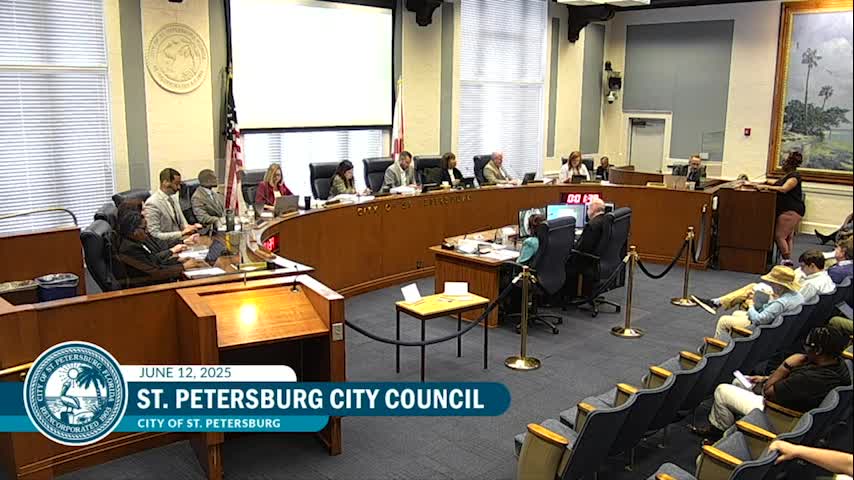
Council hears update on Hidden Voices program supporting returning citizens, trauma counseling and tiny‑homes placements
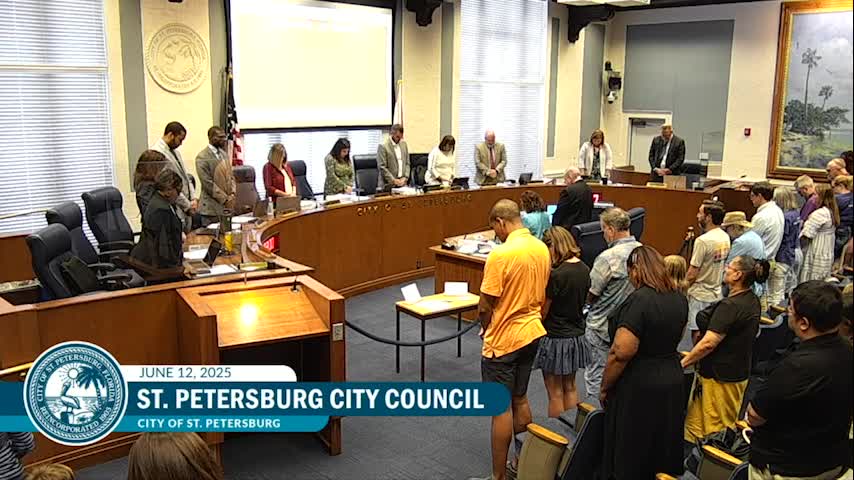
City council approves $159.8 million 'Sunrise St. Pete' CDBG‑DR action plan to fund housing, infrastructure and recovery supports
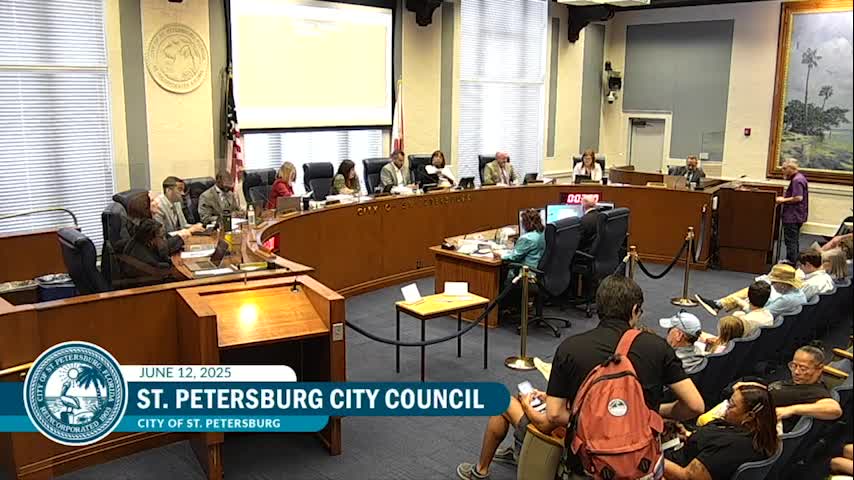
Residents criticize ‘Clean and Safe’ and proposed business improvement district, urge housing and outreach instead
